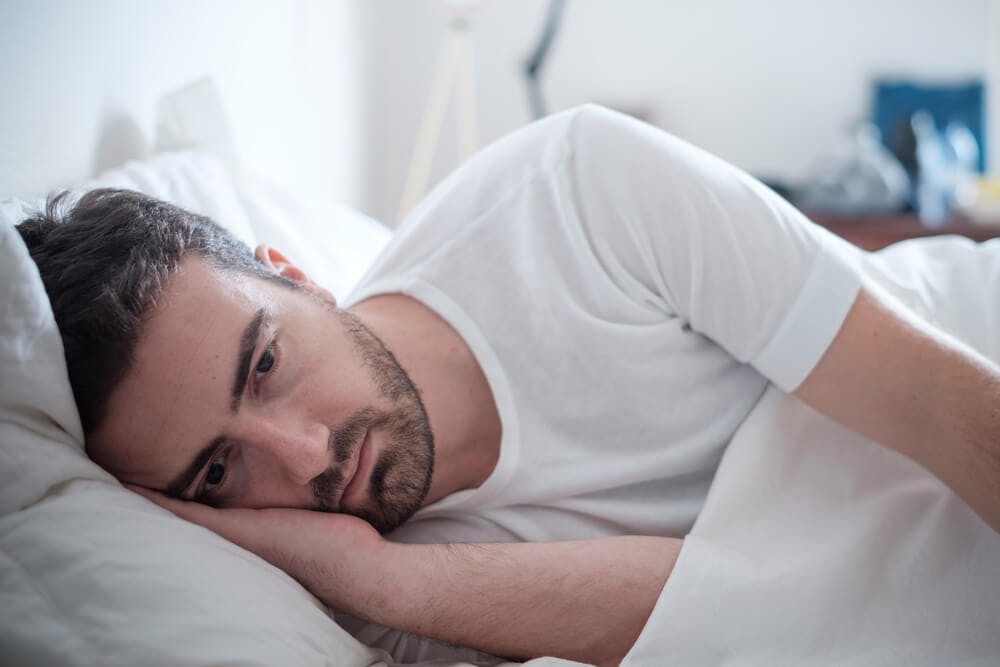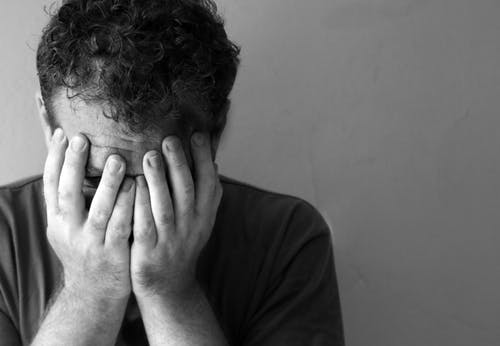What are the most obvious signs of depression?
It’s essential to remember that signs and symptoms of depression may occur at various times and don’t always indicate that you’re depressed – there may be other factors causing you to display symptoms of depression.[2] Knowing the signs of depression can help you stay atop your mental health and well-being and seek treatment if necessary.
It is possible to be depressed if you’ve been feeling down, sad, or hopeless, and have lost interest or pleasure in your regular activities for more than two weeks.[3] Moreover, there are other common signs of depression that may indicate that you have depression, including:
- Withdrawal from social activities, such as not going out anymore
- Decrease in productivity, such as not getting things done at work/school
- Isolating yourself from loved ones and friends
- Increased intake of alcohol and substances to cope
- Loss of interest in hobbies and activities
- Being unable to concentrate or feeling on edge
- Feeling overwhelmed with your situation
- Feeling irritable or frustrated
- Decrease in self-esteem, such as becoming less confident
- Having recurring negative thoughts
- Constant feeling of being tired or fatigued
- Increased ‘random’ headaches or muscle pains
- Sleep problems
- Loss or change of appetite
- Significant weight loss or gain
If you believe that you or someone you care about may be showing signs of depression, completing our online questionnaire is a quick and confidential way to give you more insight into understanding how you’re feeling. The test doesn’t provide a diagnosis, but it does help you connect with one of our Mosh doctors, who can provide tailored responses based on your answers.
Mosh does everything we can to help you get through what you’re experiencing through our network of AHPRA-registered doctors and high-quality services. With Mosh, you can be more aware of the signs of depression in yourself or your loved ones.
How are the symptoms of depression treated?
Depression is often caused by a multitude of factors.[4] Depending on the symptoms and effects of depression that you experience, other factors may be considered first before proceeding with a specific treatment for depression. Moreover, each symptom and effect may be addressed in different ways. Only your doctor can recommend a treatment suited to your unique situation.
In general, there are a couple of common treatment options for treating depression. For mild symptoms of depression, symptoms may be relieved by:
- Psychological therapy, either in person or online, with a medical professional.[5]
- Lifestyle changes, such as regular physical exercise or dietary changes
- Being informed and learning about the condition
For more moderate and severe cases of depression, medical treatments would most likely be required in tandem with other forms of treatment. A person with depression may be recommended to undergo forms of psychological treatment such as cognitive behavioural therapy (CBT), interpersonal therapy (IPT), and mindfulness-based cognitive therapy (MBCT). Moreover, a person suffering from depression may also be prescribed antidepressant medications for their symptoms.[6]
It is essential to realise that depression doesn’t just affect one’s mental state; it also affects the body. It may be more straightforward to prescribe an all-in-one solution or treatment for a person suffering from depression, but it does not work that way.
A treatment option may work for one person, but not the other, or a treatment option may work in the beginning, but lose effectiveness later on. Furthermore, treatment options can vary greatly depending on the severity of a depression diagnosis.
Either way, it is recommended to always be in contact with your doctor and update them with any changes in your well-being and mental state throughout your treatment.
Mosh has a network of doctors who can help you understand the signs of depression and more. When our doctors review your situation and find treatment necessary, they may recommend a personalised plan to assist you. It’s totally up to you if you'd like to move forward with it; we will never force you to commit to any treatment plan you don’t want.
If the doctor prescribed it and you’ve opted to use one of our treatment plans, we also offer a range of services for our Mosh patients. We offer ongoing check-ins with our doctors through either text, call, or video. We also offer one-on-one, online, and confidential therapy sessions to support you in every step of your recovery.
If you are prescribed medications with Mosh, your treatment can be delivered to you at your earliest convenience. Afterwards, you will need to check in with your Mosh doctor after the first, third, and sixth months, as well as every six months after that.
If you want to ask, ‘What are the signs of depression?’ or ‘How is depression diagnosed?’ or even ‘What causes depression?’ you can consult with our Mosh doctors.
When should I seek medical help for depression?
It is important not to ignore the signs of depression, especially if they seem to be getting worse. Seeing a doctor as soon as possible is highly encouraged.[7] Depression doesn’t simply go away on its own; it may seem like your symptoms are getting better, but if depression is left untreated, the effects may negatively impact a person’s life for months or even years.[8]
Generally, if you think you are experiencing signs and symptoms of depression, it’s best to seek help from your doctor as early as possible. You don’t have to struggle on your own in silence. You should seek medical help if you experience symptoms of depression intensely for more than two weeks. The sooner you seek support and have your symptoms addressed, the sooner you can recover.
Some people with depression may feel like life is too much or that they have intrusive self-destructive thoughts. If you are experiencing suicidal thoughts or have ideation of self-harm, don’t wait – seek help now.
Mosh is here for you!
Depression is a treatable mental health disorder if you seek proper medical help. While it may take time and effort to get better, it’s all in the process of overcoming depression.
At Mosh, we are committed to helping you get through your difficult moments. Instead of just wishing that you get better, you can make conscious steps towards recovery. That is why we are here to help you achieve the results you desire.
You can talk to our doctors about what are the signs of depression, how to know if you have depression, or What Helps With Depression when I feel depressed. They may be able to provide personalised advice on how to improve your mental health or how to cope with depression.
If you’re in crisis or experiencing suicidal thoughts, call the national emergency telephone at 000 or Lifeline at 13 11 14.
You don’t have to struggle alone anymore. We encourage you to talk to a Mosh doctor when you’re ready.

